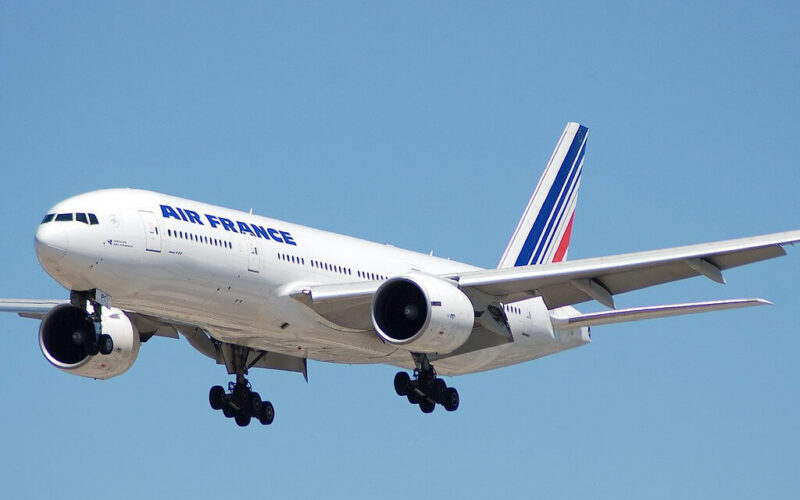The French government will implement an eco-tax of 1.50 to 18 euros on air tickets from 2020. The tax will be applied to all flights departing from French airports, except for connecting flights and those to Corsica or French overseas territories.
The tax will not only apply to French airlines, but to all those operating from the country. The Ministry of Transport expects the “eco-tax” to bring €182 million from 2020. The money should then be reinvested in greener transport infrastructure, including rail.
The tax was detailed as such by Transport Minister Elisabeth Borne: on domestic and intra-European flights, it should amount to €1.50 in economy class and €9 in business class, and for flights outside the European Union to €3 in economy class and €18 in business class. Corsica and French overseas territories will be exempted, as they are “depending on these routes for opening up”, according to the Ministry.
For the French government, this measure is answering to one of the complaints by the Yellow Vest movement that felt frustrated to see an increase in “green” taxes on car fuel, but none on the aviation sector. “We understood from the Yellow Vests that it was necessary to lower taxes while pushing the ecological transition,” said the office of the Prime Minister, quoted by Le Parisien.
But for the International Air Transport Association (IATA), the tax is “misguided”. In June 2019, IATA had already voiced their disapproval of a tax on tickets. Citing a survey conducted in 2018, it showed that only 22% of the European population support environmental taxes. In France, 81% of the people questioned said they did not trust their government to reinvest the money on environmental protection programs.
The association claims that not only will the tax not help the industry invest in greener alternatives, but it will also “damage €100 billion that aviation generates for the French economy and 500,000 new jobs are at risk from the lack of competitiveness of French aviation”.
Air France, which will be the most impacted by this tax, also strongly disapproved of the measure. “This tax would represent an additional cost of over 60 million euros per year for the Air France group,” a press release by the French flag carrier reads, reminding that France is already “one of the countries with the most heavily-taxed air transport industry in Europe”. Last year, Air France reported a loss of €180 million on its domestic network.
France follows the example of Sweden, where a similar tax was introduced in April 2018, in order to lessen the impact air travel has on the environment. At the time, three major airlines (SAS, BRA and Norwegian) argued that the tax would have a minimal positive impact on the environment.
In June 2019, two members of the French parliament submitted the idea to close domestic air routes that have a greener alternative. In most cases, that alternative is a train.

